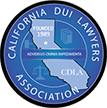Under California Vehicle Code section 23622, you can be convicted for a second DUI offense if you were charged with a DUI offense, wet recklessness, or DUI causing injury within ten years. There is a significant difference in how the court treats your first and second DUI. A second DUI can lead to mandatory jail time and a minimum of 96 hours of custody.
That's why it's crucial to hire a professional criminal attorney who can help you get through your case and possibly have your case dismissed or reduced to a lesser charge. At Bakersfield DUI Attorney, we are committed to providing the best legal services to clients facing DUI charges and we are ready to represent you.
Legal Definition of 2nd DUI Offense in California
In California, a second DUI conviction occurs when a driver is arrested for DUI or wet recklessness within ten years after the prior conviction. This kind of offense is referred to as a 'priorable offense' and usually carries harsher penalties than the first charges.
For the court to convict a suspect for DUI successfully, there are several aspects that the prosecution must prove. These aspects are referred to as elements of the crime and are as follows:
Probable Cause for Your Arrest
A traffic officer should not stop a driver unless there is a reason to do so. At any time, officers stop vehicles for simple and obvious reasons like speeding, running stoplights or red lights, or weaving in and out of lanes. Other reasons can be subtler, like expired license tags and broken tail lights. Either way, the officer has a right to stop you if there is a valid reason to do so. Once you are stopped, the officer should ask you to take a field sobriety test to confirm whether there are sights of being intoxicated. This includes red eyes, an alcoholic odor, and intoxication.
Driving a Motor Vehicle
The prosecution must show that there was a movement of the vehicle to satisfy this element. This element indicates the intentional movement of the motor vehicle in question. California courts deem even the slightest movement of a car as enough to satisfy this element. Apart from that, the prosecution can infer the vehicle's movement through circumstantial evidence like having the engine on or a warm bonnet.
Driving While Under the Influence
The prosecution usually uses sobriety test results and BAC test results to prove that you were driving while under the influence. When a person is DUI, it means that the person's physical and mental abilities are impaired to the degree that the person cannot drive without the caution that a sober or ordinary person would drive under similar circumstances.
Penalties for 2nd DUI in California
As highlighted earlier, the penalties for a second DUI offense are usually steeper than first DUI's. The severity of these penalties depends on the circumstances of the crime. For instance, if you were charged and convicted for a felony DUI in your prior violation, the prosecution might push for harsher penalties in your second DUI case. Typically, below are the common penalties imposed in a 2nd DUI conviction:
- A maximum of five years of summary probation
- Mandatory jail time for a minimum of ninety-six hours
- A fine that ranges between $390 - $1,000 and an additional $1,000 penalty assessment
- Mandatory completion of an 18-month or 30-month court-approved DUI school
- Installation of an IID (Ignition Interlock Device) for one year
- Driver's suspension for two years, which is convertible to a restricted license after twelve months
When the court is imposing summary probation on a person, they usually include specific conditions. These include the following:
- Avoiding committing a crime
- Avoid driving without any amount of alcohol in your system
- Mandatory submission to DUI tests
These are basic rules. However, there are other conditions that the judge might impose on you. These include:
- Pay your court fees and other fees related to your DUI
- Enroll in a DUI traffic school
- Completing your mandatory jail time
- Completion of a particular number of hours of addiction treatment
- Participation in community services like Caltrans
- Attending a deterrent program to try to scare you away from DUI in the future
- Attendance in Narcotic Anonymous (NA) and Alcoholics Anonymous (AA) meetings
Possibility of Losing your Driver's License in a 2nd DUI Conviction
The California Department of Motor Vehicles has the authority to suspend your California driver's license or give you a restricted driver’s license. However, the DMV can use two separate methods to trigger your license suspension. This includes:
- Suspension triggered by a conviction under VC 23152 (a) and (b)
- Failure to request a DMV hearing within ten days after your arrest or losing your DMV hearing. This hearing is referred to as Administrative Per Se suspension
The court-triggered suspension usually lasts for two years for those with a wet recklessness or prior DUI conviction within ten years. However, you can have an APS-triggered suspension if you have one previous DUI within ten years. You can obtain a restricted license if, within ninety days, you have been submitting to chemical tests and have shown proof of installing an Ignition Interlock Device. The restricted license usually lasts for 12 months, and with it, you can drive anywhere.
Unfortunately, drivers with a 2nd DUI charge who refuse to submit to a chemical test are at risk of having their restricted license revoked for two years without the entitlement to a restricted license during the suspension.
Please note, if you are eligible for the restricted license, you must install it immediately after the 91st day after the suspension. Finally, your DMV record must show that there your court-triggered suspension has started.
Possibility of a Permanent Criminal Record Due to 2nd DUI
Ideally, your DUI record should remain a permanent criminal record unless it's expunged. You can have your California DUI conviction expunged if you were placed on summary probation and completed it.
Expunging a DUI criminal record works like other criminal records. Once a petition is filed in the court, the judge will review it and decide whether to grant the petition or not.
Factors that Can Increase Your Punishment
Particular factors present at your time of booking for the 2nd DUI offense in California can increase your penalties. These includes:
- Having a BAC of 0.15% or higher
- Refusal to submit to a chemical test
- Being a minor under 21 during the time of your California DUI offense
- Causing an accident
- Excessive speed
- Having children below 14 years in the car during your arrest
The penalty you receive for the above-stated aggravating factors depends on your criminal history, particularly your prior DUI offense and your arrest circumstances.
Penalties for 2nd DUI Arrest for 1st DUI Probationers
You might find yourself arrested for a 2nd DUI violation while serving your 1st DUI probation. In this situation, your case will be held in three perspectives. This includes:
- A probation hearing to determine the extent of violation of your probation
- Being charged for your second DUI
- You will hold a DMV hearing to determine whether to suspend or revoke your driver's license
Most California courts recommend a jail sentence of sixty to ninety days after a probation violation. Your driver's license will also be suspended for two years with eligibility for a restricted license after serving the suspension for a year.
You might also have to pay a total fine of $2000, attend an 18-month alcohol program and attend a Mothers Against Drug Driving (MAAD) forum. The court can also impose five years in probation.
Possible Legal Defenses for 2nd DUI in California
A DUI arrest does not automatically dictate a conviction. Your attorney can help you reduce or dismiss your charges by fighting your DUI charges using the right defense strategies. Below are several defense strategies that would help you fight your charges.
No Probable Cause for your Arrest
Under the Fourth Amendment, traffic police officers should have valid reasons for pulling you over. If the officer has no practical reason, this creates a reasonable ground to challenge the stop. Any evidence that suggests you're guilty, like slurred speech, bloodshot, watery eyes, and alcohol odor, will be tossed out if you are successful.
For a traffic officer to legally stop you, there must be a reasonable reason for the stopping. A reasonable belief includes an indication that you are driving while under the influence or committing a traffic violation. For instance, failure to maintain a single lane is not a reasonable cause to have the police stop you unless you are affecting traffic.
One of the common scenarios that cause DUI officers to stop a driver is going over the yellow line several times. However, if the officer is silent that you were affecting other traffic by crossing the yellow line, this would be a perfect ground to fight your DUI charges.
Your Arrest was Based on Your Location
Being in a high-crime neighborhood doesn't establish a legal basis for a stop. If your arrest results from your presence in a high crime neighborhood, your attorney can demonstrate a legal defense to disapprove your charges.
Illegal Detention
A police officer can violate your constitutional rights if he or she restrains your movement. There is a significant difference between consensual encounters and detaining. In a consensual encounter, the following proceedings are expected:
- Asking for your ID
- Closely following your vehicle
- Approaching your vehicle in a public place
- Approaching a car when you voluntarily roll down the window
- Stop the vehicle in a location that would allow your vehicle to move forward and backward
When it comes to detention, the officer must use slight force. The following situations are an indication of detainment:
- Pulling your vehicle's door handle to force you out of the vehicle
- Asking you to exit your vehicle
- Opening your vehicle's door while you are sleeping
- Pulling the police cruiser behind your car to restrict your ability to leave
Coerced Compliance to Roadside Tests
A traffic officer can ask you to take some roadside test once they suspect that you are DUI. Sobriety tests are usually voluntary, meaning that the officer should not force you into taking them. However, if the officer puts you in a position that you feel coerced to take the test, the test results would be considered involuntary during your DUI case.
Unlike field sobriety tests, it's mandatory to take the chemical test administered by the traffic officer. Failure to do so will put you at risk of additional punishment like suspension of your driver's license.
Unreasonable Detention
Just because a police officer has a legal basis to stop you does not mean that the roadside should hold you for a lengthy time. This situation arises when a patrolman pulls you for speeding or due to other traffic infractions but decides to call another officer to conduct the DUI investigations.
The other officer might take a long time to arrive at the scene of the DUI investigation. Such delays are unreasonable and violate your constitutional rights. If your attorney proves that you were unreasonably detained, the court might throw away all the evidence gathered by the DUI investigation officer.
You Had a Rising BAC
It's not illegal to drink an alcoholic beverage. What's unlawful is being impaired while driving. Your BAC level does not automatically reach a particular level soon after drinking. It takes about fifty minutes to get to peak levels, depending on several factors. To others, it can take up to two or three hours.
During this period, a driver is experiencing a rising blood alcohol level. That's why using an excessive length of detention is a suitable legal defense since your BAC level could have risen to the restricted levels during the lengthy detention period. Since what matters is the level of DUI at the time you drove, this is a solid defense for your DUI charges.
Objective Signs Are Not Prove of Intoxication
Another effective way to fight DUI charges is by proving that the physical symptoms portrayed do not argue that you were under the influence. A DUI investigation officer can testify that you were under the influence simply because:
- You had a slurred speech
- You had a flushed face
- There was a strong alcoholic odor on your breath
- Had an unsteady gait
- You had red, watery eyes
These objective signs are listed on a pre-printed DUI arrest form. The officer checks off these signs and symptoms in the list without further elaboration. However, all these signs and symptoms can result from common issues like fatigue, eye irritation, cold, and allergies. If you are worried about the alcohol odor coming from your mouth, your attorney can argue that these are common smells found in non-alcoholic beverages like hops and malts.
Your Field Sobriety Test Results Are Not Accurate Measurement of Impairment
Some of the prosecution evidence include field sobriety test results. Your attorney can challenge these results as part of your defense. Most prosecution heavily relies on these test results and can almost testify that your poor performance on these tests concludes that you're guilty of DUI.
However, your DUI defense lawyer can argue that your poor performance does not automatically mean you were intoxicated. Your poor performance could result from nervousness, fatigue, natural physical coordination, flat feet, and your clothing.
Failure to Conduct a Proper 15-Minute Observation
A police officer should observe you for fifteen minutes before conducting a DUI breath test. Questioning whether the observation took place is a suitable DUI defense that your attorney can utilize. Unfortunately, most officers do not observe suspects during this period but instead do paperwork or set up the breath test machine. Proving that the officer failed to conduct the observation raises questions on the entire breath test result and the whole DUI investigation.
Failure to Comply with Title 17 Regulations
The California Code of Regulations Title 17 defines how DUI officers should conduct DUI blood and breath tests. These codes of regulations require:
- The officer to take a 15-minute observation period
- The person administering the test to be appropriately trained to conduct the chemical test
- Properly administer the test
- Regularly calibrate and maintain the testing equipment
- Proper collection, storage, and handling of the test blood
If any of the Title 17 regulations are not strictly observed, this can significantly taint the test results and have them dismissed in your case. Your defense attorney should use these failures to comply with these regulations and call the entire DUI investigation into question and successfully defend you against the DUI charges.
Find a DUI Attorney Near Me
If you or your loved one is facing DUI charges, you need to find professional legal representation to increase the chances of dismissing your case or having it reduced to a lesser charge. At Bakersfield DUI Attorney, we pride ourselves as one of the best DUI defense attorneys in Bakersfield, CA. We are dedicated to our clients and will do anything to get the best deal possible for you or your loved one. Contact us today at 661-215-5660 and learn more about our services.







